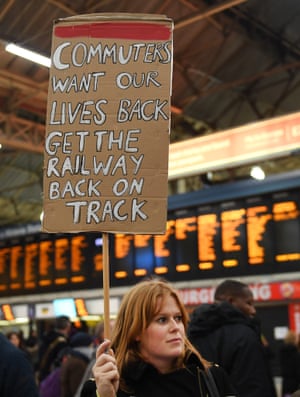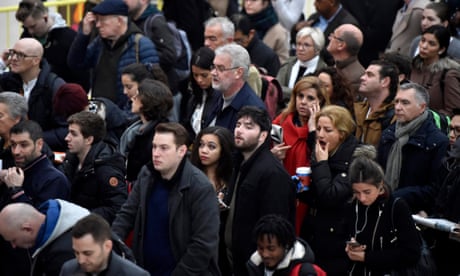'People will forgive you for being wrong, but they will never forgive you for being right - especially if events prove you right while proving them wrong.' Thomas Sowell
Search This Blog
Saturday, 17 August 2024
Friday, 23 June 2023
Fallacies of Capitalism 15: The Voluntary Transactions of Actors in an Economy
A voluntary transaction refers to an economic exchange between two or more parties where each party willingly participates without coercion or external pressure. In a voluntary transaction, individuals are assumed to engage in the exchange because they perceive it to be mutually beneficial, based on their own preferences and subjective judgements of value.
However, the "voluntary transactions" fallacy arises when this concept is applied without considering the power imbalances and information asymmetries that can exist in real-world market transactions. While voluntary transactions are a foundational concept in market economics, it is important to recognise that not all transactions occur under ideal conditions of equal power and perfect information. Here are some additional points to consider:
Power imbalances: In many transactions, there can be significant disparities in bargaining power between the parties involved. For example, in labour markets, workers may face limited employment options and economic pressures, while employers may have more leverage in determining wages and working conditions. These power imbalances can influence the outcomes of the transaction, potentially leading to exploitation or unfair terms.
Information asymmetry: In voluntary transactions, it is assumed that both parties have access to complete and accurate information about the goods, services, or conditions involved. However, in reality, information can be unevenly distributed between buyers and sellers. Sellers may possess superior knowledge about the product, its quality, or potential risks, while buyers may lack access to the same information. This information asymmetry can undermine the notion of fully informed and voluntary choices.
Coercive pressures: While voluntary transactions should be free from coercion, individuals can face external pressures that limit their choices and compromise their ability to make truly voluntary decisions. These pressures can include economic necessity, social or cultural expectations, or systemic inequalities. For example, individuals may accept low-paying jobs or unfavourable contracts due to limited alternatives or the need to meet basic needs.
Market failures: The assumption of voluntary transactions fails to account for market failures, such as externalities or the undersupply of public goods. Externalities occur when the actions of one party impose costs or benefits on others who are not involved in the transaction. Market failures can result in suboptimal outcomes, where voluntary transactions do not account for the broader social or environmental impacts.
By considering these factors, it becomes clear that the "voluntary transactions" fallacy oversimplifies the complexities of real-world market interactions. Recognising the existence of power imbalances, information asymmetries, and other limitations is crucial for understanding the potential consequences of market transactions and designing policies that promote fair and equitable outcomes.
Monday, 19 December 2016
Don’t complain about the strikers – they’re only doing what we all should in 2017
We seem to love the working class as long as it is a) white and b) passive. The real working class is neither. It is multi-ethnic and, from Southern Rail to British Airways, it is set to strike.
Predictably, the Conservatives are calling for more legal restrictions on strike action. Theresa May accused strikers of “contempt for ordinary people”. And – as always – the neck veins of TV reporters are bulging as they express outrage on behalf of those affected.

Union leader says No 10 demonising working people in strikes row
Yet, try as they might, the politicians and journalists have failed to stir up mob hatred against the strikers, some of whom – such as the Southern Rail drivers and guards – have been taking industrial action for weeks. And the reasons for this are obvious: they are ordinary people.
While the miners and steelworkers of the 1980s worked in relatively insular steel and mining towns, everybody knows a BA cabin steward, a train guard, a baggage handler or a Post Office counter worker. What’s more, because so much of our work has become modular, low-paid and deskilled, many people know, or can guess, exactly what they are going through.
We have near full employment yet near wage stagnation. The strikes taking place over Christmas are happening among workers who have not seen a pay rise for years. BA’s onboard customer service managers, for example, have been stripped of their union negotiation rights and had their pay frozen for six years.
One of the most pitiful things about the political class, and the economists who whisper certainties in their ear, is their distance from the actual experience of work. As trade union rights have become eroded throughout the private sector, and large chunks of the public sector become privatised, a culture of coercion has taken root at work.

A commuter protests in support of Southern Rail staff. at Victoria Station in London. Photograph: Andy Rain/EPA
It does not have to be as bad as the leading fast-food cafe chain where a secret shopper deducts the bonus of an entire shift if one person does not smile. But it is pervasive.
Generally, you are supposed to smile, supposed to exhibit happiness for your seven quid an hour, obey orders without question, to hit meaningless targets or scam them on the instruction of your line manager – and, increasingly, you’re supposed to pretend you are self-employed.
You can spend entire days, if you think about it, being served only by people with no actual employment status: the Uber driver, the hairdresser, the physiotherapist. Even businesses where you’re paying a limited company through your credit card now routinely require their “associates” to be self-empolyed.
The result looks like a fake-tan version of Downtown Abbey with all the same levels of deference but zero paternal responsibility. And deep down, people who work for a living understand the modern “contract” between worker and employer is barely worth the paper it is written on.
That’s why workers with union rights and relative job security use the strike weapon. It’s never pleasant. But every cabin worker at BA and Virgin knows that, without the unions, they would see their pension rights stolen and their conditions eroded to the same levels enjoyed by their counterparts at the budget airlines.
And what’s driving the attacks is always the same familiar, financial pressure. Public services, once privatised, are forced to enter a race to the bottom in terms of pay, conditions and pensions for their workers. Once financial logic overtakes the logic of providing a service as efficiently as possible, you get the stupidities of Southern Rail, which cut its services to passengers in order to provide itself with an achievable target.
Jeremy Corbyn has been condemned for failing to condemn the strikes – and for attending a Christmas party with the Aslef union. If it were up to me, Corbyn would actually throw a Christmas party, not just for the Aslef strikers but for all the workers toiling on basic pay, fictitious contracts and unachievable targets over the festive period.
Those of us in unions – and there are still millions of us – know they make a massive and positive difference. Because workers on London Underground are unionised, there is a guard at my local tube station who refuses to wear any other name badge than one with “Lenin” on it.

No 10 accuses striking workers of 'contempt for ordinary people'
Although I do not recommend this level of resistance for everybody, it is a physical symbol of the fact that unionised workers are people you do not mess around with.
The Southern strikers, the BA crews and the Post Office workers are showing a different side of what it means to express your collective identity at work. So did the junior doctors, whose determined action got them a better deal than their leaders originally thought they could achieve.
Coming on top of the strikes by Deliveroo riders and a union-led court victory for Uber drivers, these are signs that even the heavily casualised workforce of the 21st century will not suffer indignity for ever.
In economics, it has become common to hear that one of the main failings of the current system is wage stagnation; even the Bank of England would like to see more inflation. So don’t complain about the posties, train drivers, cabin crews and baggage handlers – they’re only doing what we all should in 2017.
Ask for a pay rise, defend your pension rights, insist that work conditions are respectful and safe – and demand your employer negotiates with a real trade union and pays the rate for the job.
Monday, 14 November 2016
Neoliberalism: the deep story that lies beneath Donald Trump’s triumph
The events that led to Donald Trump’s election started in England in 1975. At a meeting a few months after Margaret Thatcher became leader of the Conservative party, one of her colleagues, or so the story goes, was explaining what he saw as the core beliefs of conservatism. She snapped open her handbag, pulled out a dog-eared book, and slammed it on the table. “This is what we believe,” she said. A political revolution that would sweep the world had begun.
The book was The Constitution of Liberty by Frederick Hayek. Its publication, in 1960, marked the transition from an honest, if extreme, philosophy to an outright racket. The philosophy was called neoliberalism. It saw competition as the defining characteristic of human relations. The market would discover a natural hierarchy of winners and losers, creating a more efficient system than could ever be devised through planning or by design. Anything that impeded this process, such as significant tax, regulation, trade union activity or state provision, was counter-productive. Unrestricted entrepreneurs would create the wealth that would trickle down to everyone.
This, at any rate, is how it was originally conceived. But by the time Hayek came to write The Constitution of Liberty, the network of lobbyists and thinkers he had founded was being lavishly funded by multimillionaires who saw the doctrine as a means of defending themselves against democracy. Not every aspect of the neoliberal programme advanced their interests. Hayek, it seems, set out to close the gap.
He begins the book by advancing the narrowest possible conception of liberty: an absence of coercion. He rejects such notions as political freedom, universal rights, human equality and the distribution of wealth, all of which, by restricting the behaviour of the wealthy and powerful, intrude on the absolute freedom from coercion he demands.
Democracy, by contrast, “is not an ultimate or absolute value”. In fact, liberty depends on preventing the majority from exercising choice over the direction that politics and society might take.
He justifies this position by creating a heroic narrative of extreme wealth. He conflates the economic elite, spending their money in new ways, with philosophical and scientific pioneers. Just as the political philosopher should be free to think the unthinkable, so the very rich should be free to do the undoable, without constraint by public interest or public opinion.
The ultra rich are “scouts”, “experimenting with new styles of living”, who blaze the trails that the rest of society will follow. The progress of society depends on the liberty of these “independents” to gain as much money as they want and spend it how they wish. All that is good and useful, therefore, arises from inequality. There should be no connection between merit and reward, no distinction made between earned and unearned income, and no limit to the rents they can charge.
Inherited wealth is more socially useful than earned wealth: “the idle rich”, who don’t have to work for their money, can devote themselves to influencing “fields of thought and opinion, of tastes and beliefs.” Even when they seem to be spending money on nothing but “aimless display”, they are in fact acting as society’s vanguard.
Hayek softened his opposition to monopolies and hardened his opposition to trade unions. He lambasted progressive taxation and attempts by the state to raise the general welfare of citizens. He insisted that there is “an overwhelming case against a free health service for all” and dismissed the conservation of natural resources.It should come as no surprise to those who follow such matters that he was awarded the Nobel prize for economics.
By the time Mrs Thatcher slammed his book on the table, a lively network of thinktanks, lobbyists and academics promoting Hayek’s doctrines had been established on both sides of the Atlantic, abundantly financed by some of the world’s richest people and businesses, including DuPont, General Electric, the Coors brewing company, Charles Koch, Richard Mellon Scaife, Lawrence Fertig, the William Volker Fund and the Earhart Foundation. Using psychology and linguistics to brilliant effect, the thinkers these people sponsored found the words and arguments required to turn Hayek’s anthem to the elite into a plausible political programme.

The ideologies Margaret Thatcher and Ronald Reagan espoused were just two facets of neoliberalism. Photograph: Bettmann/Bettmann Archive
Thatcherism and Reaganism were not ideologies in their own right: they were just two faces of neoliberalism. Their massive tax cuts for the rich, crushing of trade unions, reduction in public housing, deregulation, privatisation, outsourcing and competition in public services were all proposed by Hayek and his disciples. But the real triumph of this network was not its capture of the right, but its colonisation of parties that once stood for everything Hayek detested.
Bill Clinton and Tony Blair did not possess a narrative of their own. Rather than develop a new political story, they thought it was sufficient to triangulate. In other words, they extracted a few elements of what their parties had once believed, mixed them with elements of what their opponents believed, and developed from this unlikely combination a “third way”.
It was inevitable that the blazing, insurrectionary confidence of neoliberalism would exert a stronger gravitational pull than the dying star of social democracy. Hayek’s triumph could be witnessed everywhere from Blair’s expansion of the private finance initiative to Clinton’s repeal of the Glass-Steagal Act, which had regulated the financial sector. For all his grace and touch, Barack Obama, who didn’t possess a narrative either (except “hope”), was slowly reeled in by those who owned the means of persuasion.
As I warned in April, the result is first disempowerment then disenfranchisement. If the dominant ideology stops governments from changing social outcomes, they can no longer respond to the needs of the electorate. Politics becomes irrelevant to people’s lives; debate is reduced to the jabber of a remote elite. The disenfranchised turn instead to a virulent anti-politics in which facts and arguments are replaced by slogans, symbols and sensation. The man who sank Hillary Clinton’s bid for the presidency was not Donald Trump. It was her husband.
The paradoxical result is that the backlash against neoliberalism’s crushing of political choice has elevated just the kind of man that Hayek worshipped. Trump, who has no coherent politics, is not a classic neoliberal. But he is the perfect representation of Hayek’s “independent”; the beneficiary of inherited wealth, unconstrained by common morality, whose gross predilections strike a new path that others may follow. The neoliberal thinktankers are now swarming round this hollow man, this empty vessel waiting to be filled by those who know what they want. The likely result is the demolition of our remaining decencies, beginning with the agreement to limit global warming.
Those who tell the stories run the world. Politics has failed through a lack of competing narratives. The key task now is to tell a new story of what it is to be a human in the 21st century. It must be as appealing to some who have voted for Trump and Ukip as it is to the supporters of Clinton, Bernie Sanders or Jeremy Corbyn.
A few of us have been working on this, and can discern what may be the beginning of a story. It’s too early to say much yet, but at its core is the recognition that – as modern psychology and neuroscience make abundantly clear – human beings, by comparison with any other animals, are both remarkably social and remarkably unselfish. The atomisation and self-interested behaviour neoliberalism promotes run counter to much of what comprises human nature.
Hayek told us who we are, and he was wrong. Our first step is to reclaim our humanity.